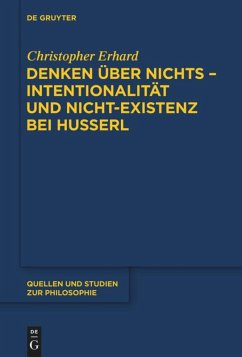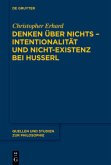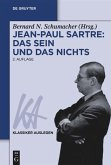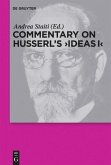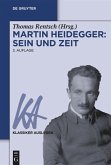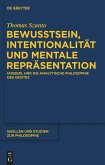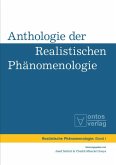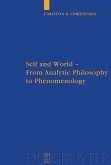Ever since Parmenides, one of philosophyâ??s riddles has been how we are able to direct our thoughts to nonâ??being. Erhard uses the problem of non-existence as the starting point for an analysis of Husserlâ??s phenomenology. He examines Husserlâ??s interpretation of judgments about nonâ??being as judgments made â??under assumptionâ? and his analysis of â??free fantasy.â? Erhard thus demonstrates that Husserl is compatible with todayâ??s nonâ??relational theories.
Seit Parmenides gehört die Frage, wie man auf etwas intentional "gerichtet " sein kann, das nicht existiert, zu den Rätseln der Philosophie. Gemäß einer Lesart besteht das Rätsel darin, ob Intentionalität eine Relation ist. Ist dem aber so und gehört es zur Natur einer Relation, nur zwischen Existierendem bestehen zu können, wie kann es dann eine "intentionale Relation" zwischen einer Entität und einer Non Entität geben? Muss man, wie etwa Meinong, einen eigenen Status für jedes intentionale Objekt einführen? Oder sollte man eher die Idee aufgeben, Intentionalität sei eine Relation? In diesem Buch wird das Problem der Nicht Existenz im Kontext dieser Fragen verortet und zum Ausgangspunkt einer Untersuchung von Husserls Phänomenologie bewusster Intentionalität gemacht. So werden z. B. Husserls Deutung von Urteilen über Nicht-Seiendes als Urteile "unter Assumption" und seine Analyse der freien Phantasie untersucht. Husserl wird insgesamt als Nicht Relationalist gedeutet, der sich als systematisch anschlussfähig an zeitgenössische nicht relationale Theorien erweist.
Seit Parmenides gehört die Frage, wie man auf etwas intentional "gerichtet " sein kann, das nicht existiert, zu den Rätseln der Philosophie. Gemäß einer Lesart besteht das Rätsel darin, ob Intentionalität eine Relation ist. Ist dem aber so und gehört es zur Natur einer Relation, nur zwischen Existierendem bestehen zu können, wie kann es dann eine "intentionale Relation" zwischen einer Entität und einer Non Entität geben? Muss man, wie etwa Meinong, einen eigenen Status für jedes intentionale Objekt einführen? Oder sollte man eher die Idee aufgeben, Intentionalität sei eine Relation? In diesem Buch wird das Problem der Nicht Existenz im Kontext dieser Fragen verortet und zum Ausgangspunkt einer Untersuchung von Husserls Phänomenologie bewusster Intentionalität gemacht. So werden z. B. Husserls Deutung von Urteilen über Nicht-Seiendes als Urteile "unter Assumption" und seine Analyse der freien Phantasie untersucht. Husserl wird insgesamt als Nicht Relationalist gedeutet, der sich als systematisch anschlussfähig an zeitgenössische nicht relationale Theorien erweist.

